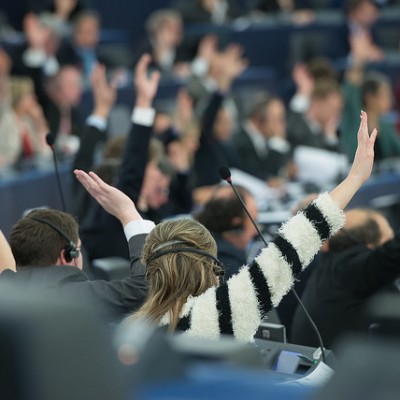
Work Plan for Culture 2019-2022
At its meeting on 14 November 2018 the Permanent Representatives Committee noted that there was now unanimous agreement on the followoing Council conclusions
The Work Plan for Culture is based on the following guiding principles:
- Culture has an intrinsic value.
- Culture contributes to sustainable social and economic development.
- Cultural and linguistic diversity is a key asset of the European Union and its protection and promotion is central to cultural policy at European level.
- Cultural mainstreaming requires a holistic and horizontal approach as regards legislation, financing and cross-sectoral cooperation.
- Regular dialogue between Member States, European institutions and civil society as well as thematic cooperation with international organisations create synergies and lead to better results.
- Better governance requires clear responsibilities and engagement by all actors involved.
- Regular monitoring by the Presidency of the Council is necessary to track the progress of the actions.
- Flexibility of the Work Plan for Culture is essential to be able to react to a changing policy environment.
The Council selects the following priorities in view of their contribution to cultural diversity, their European added value and the need for joint action:
- Sustainability in cultural heritage
- Cohesion and well-being
- An ecosystem supporting artists, cultural and creative professionals and European content
- Gender equality
- International cultural relations
1. Sustainability in cultural heritage
During the European Year of Cultural Heritage 2018, a large number of diverse activities took place all across Europe. To ensure its legacy, follow-up measures and mainstreaming activities need to be developed, including an Action Plan for Cultural Heritage by the Commission.
2. Cohesion and well-being
A stronger orientation towards the interests and needs of specific groups, such as young people, older people, people with disabilities, people with a migrant background and people living in poverty or material deprivation, is necessary. Crosssectoral cooperation with other areas, such as education, social care, healthcare, science and technology, and regional and urban development, has a significant effect on cohesion and wellbeing. Special attention should be paid to the role of culture at local level
3. An ecosystem supporting artists, cultural and creative professionals and European content
The mobility of artists and cultural and creative professionals, the circulation and translation of European content, training and talent development, fair pay and working conditions, access to finance and cross-border cooperation are issues of specific interest for research and exchange at European level.
4. Gender equality
Gender disparities need to be acknowledged and tackled by specific policies and measures. In order to raise awareness at political and administrative levels and within the different sectors, there is a need for comprehensive data and an exchange of good practice.
5. International cultural relations
A strategic step-by-step approach to international cultural relations followed by concrete actions for its implementation is necessary. Such an approach should entail a bottom-up perspective, encourage people-to-people contacts and promote intercultural dialogue.
Download the Plan (25 pages) to learn more about the concrete activities and schedules
